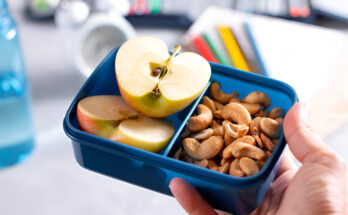The Importance of Meal Prep
Meal prepping is a game-changer for maintaining a balanced diet. It saves time, reduces stress, and ensures that you always have nutritious meals on hand. With a well-thought-out plan, you can avoid the temptation of unhealthy takeout or processed snacks. Let’s dive into some effective meal prep tips to help you stay on track.
Plan Your Meals in Advance
Start by planning your meals for the week. Consider your nutritional needs, dietary preferences, and daily schedule. Aim to include a balance of proteins, healthy fats, carbohydrates, and fiber in every meal. For example:
Breakfast: Overnight oats with almond butter and berries.
Lunch: Grilled chicken with quinoa and steamed vegetables.
Dinner: Baked salmon with sweet potatoes and a side salad.
Tools like meal planning apps or simple templates can help you organize your meals effectively.
Shop Smart with a Grocery List
A detailed grocery list prevents impulsive buying and ensures you have all the ingredients for your planned meals. Organize your list into categories (produce, proteins, grains, etc.) to make your shopping trip efficient. Opt for whole, unprocessed foods and avoid sugary snacks or pre-packaged meals.
Pro Tip: Stick to the perimeter of the grocery store, where fresh produce, meats, and dairy are typically located.
Invest in Quality Containers
Good-quality, BPA-free containers are essential for storing your prepped meals. Opt for glass containers or portioned containers with multiple compartments to keep ingredients fresh and separate. Having the right storage solutions makes it easier to transport meals and reheat them without hassle.
Batch Cooking for Efficiency
Batch cooking involves preparing large quantities of food at once and dividing it into portions for the week. Some great options include:
Cooking a big pot of soup or stew.
Roasting a tray of vegetables.
Grilling chicken or baking tofu in bulk.
This method saves time and ensures you always have ready-to-eat meals.
Portion Control: Key to Balance
Overeating can derail your balanced diet goals. Use measuring cups or a kitchen scale to divide your meals into appropriate portions. A balanced plate typically includes:
50% vegetables.
25% lean protein.
25% whole grains or complex carbs.
Portion-controlled meal prep helps with weight management and ensures you’re meeting your dietary goals.
Incorporate Variety and Seasonal Foods
Eating the same meals repeatedly can lead to boredom and nutritional gaps. Rotate your ingredients and recipes weekly. Incorporate seasonal fruits and vegetables to add variety and take advantage of their peak flavor and nutritional value.
Examples of seasonal swaps:
Summer: Zucchini, berries, and fresh herbs.
Winter: Squash, kale, and citrus fruits.
Prep Snacks and Breakfasts Too
Meal prep isn’t just for lunch and dinner. Prepare healthy snacks like:
Pre-cut vegetables with hummus.
Greek yogurt with nuts and seeds.
Hard-boiled eggs.
For breakfasts, options like overnight oats, smoothie packs, or pre-portioned egg muffins make mornings effortless.
Store and Reheat Safely
Proper storage is crucial to maintaining the quality and safety of your meals. Use the following tips:
Store meals in the fridge for up to 3-4 days or freeze for longer.
Label containers with the preparation date.
Reheat thoroughly to ensure food safety.
Stick to Your Meal Prep Goals
Consistency is key to successful meal prepping. Dedicate a specific day of the week for planning, shopping, and cooking. The time and effort you invest in meal prep will pay off with improved health, reduced stress, and better control over your diet.
Start small by prepping just a few meals a week and gradually expand as you get comfortable. With these meal prep tips, you can stay on track and enjoy a balanced diet effortlessly!




